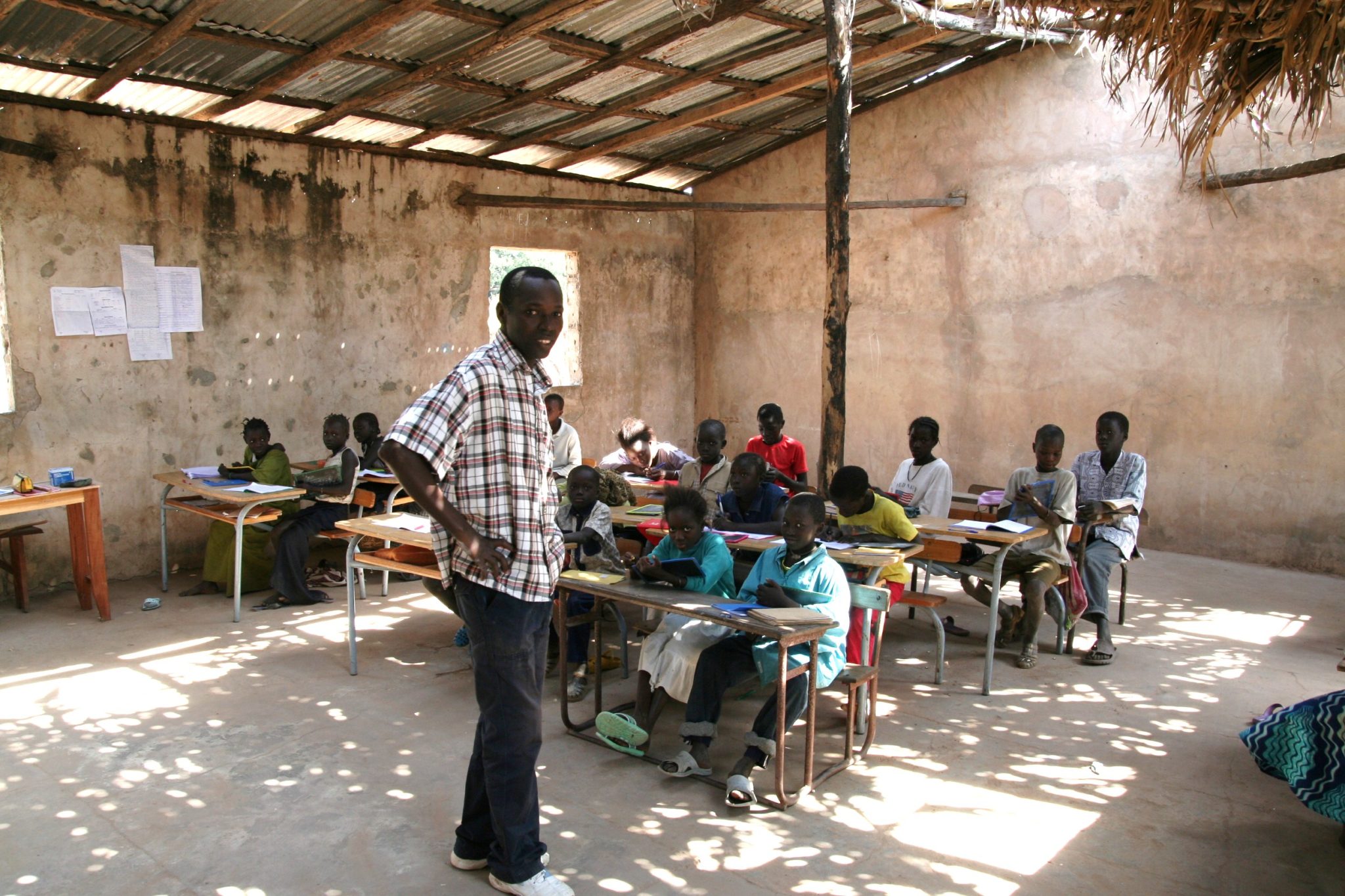SCHOOL DAY OF PEACE AND NONVIOLENCE
The School Day of Nonviolence and Peace (or its acronym DENIP), also known as World or International Day of Nonviolence and Peace, was founded in 1964 by the Mallorcan poet and educator Llorenç Vidal Vidal, and is an internationally disseminated Nonviolent and Pacificist Education initiative.

Every January 30, since 1964, the School Day of Nonviolence and Peace (DENIP) is celebrated to remember the legacy of Mahatma Gandhi on the day that the anniversary of his death is commemorated.
Schools around the world are called to celebrate DENIP with different events. The role of schools in achieving a culture of Peace is decisive. Beyond achieving basic knowledge and the skills necessary for satisfactory student development, education (at school and outside it) must have an impact on the conviction of the need to belong to a Humanity based on Peace.
 School at Casamance (Senegal)
School at Casamance (Senegal)
It will do us no good to train and have people with a high level of knowledge and mastery of skills if they are not able to put all this potential on the side of Nonviolence. We cannot afford to miss the opportunity to educate in values, thus building a space of coexistence where Peace and Nonviolence are fundamental pillars.
The objectives of the School Day of Nonviolence and Peace are:
• Raising awareness that peace is much more than the absence of wars and fights.
• To learn and become familiar with the concepts of universal love, nonviolence and positive peace, as well as with the procedures for non-violent claim of human rights.
• Meet people and/or groups fighting for peace and justice in the world.
• Knowing how to resolve conflicts in a peaceful and dialoguing way, that is, expressing opinions in a calm, clear and orderly manner.
• Share some time with all students and teachers in order to celebrate the day of nonviolence and peace. One day of commemoration, true, but a task to do every day.
.

Every January 30, since 1964, the School Day of Nonviolence and Peace (DENIP) is celebrated to remember the legacy of Mahatma Gandhi on the day that the anniversary of his death is commemorated.
Schools around the world are called to celebrate DENIP with different events. The role of schools in achieving a culture of Peace is decisive. Beyond achieving basic knowledge and the skills necessary for satisfactory student development, education (at school and outside it) must have an impact on the conviction of the need to belong to a Humanity based on Peace.
 School at Casamance (Senegal)
School at Casamance (Senegal)
It will do us no good to train and have people with a high level of knowledge and mastery of skills if they are not able to put all this potential on the side of Nonviolence. We cannot afford to miss the opportunity to educate in values, thus building a space of coexistence where Peace and Nonviolence are fundamental pillars.
The objectives of the School Day of Nonviolence and Peace are:
• Raising awareness that peace is much more than the absence of wars and fights.
• To learn and become familiar with the concepts of universal love, nonviolence and positive peace, as well as with the procedures for non-violent claim of human rights.
• Meet people and/or groups fighting for peace and justice in the world.
• Knowing how to resolve conflicts in a peaceful and dialoguing way, that is, expressing opinions in a calm, clear and orderly manner.
• Share some time with all students and teachers in order to celebrate the day of nonviolence and peace. One day of commemoration, true, but a task to do every day.
.



